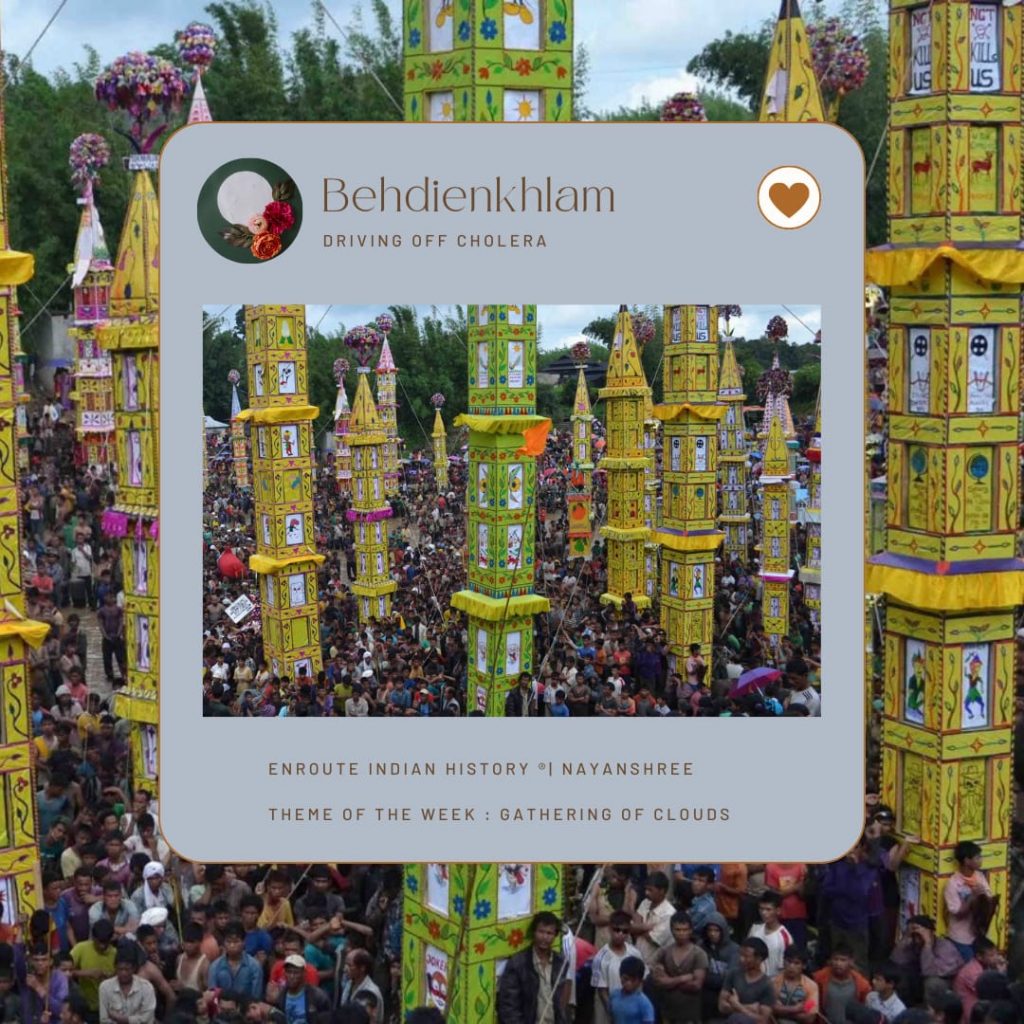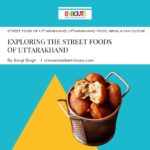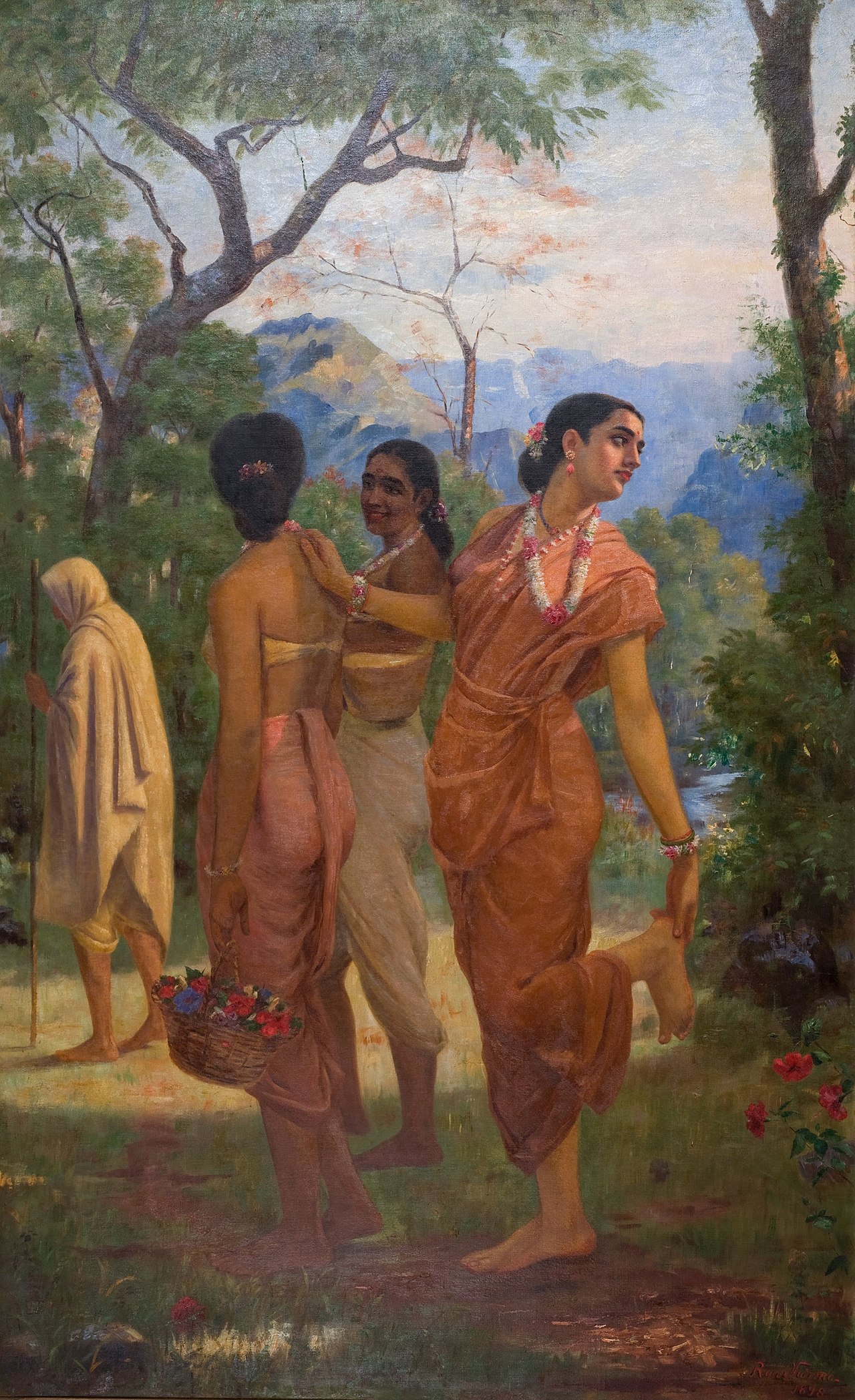
Article Written By EIH Researcher And Writer
Nayanashree Kalita
Celebrated yearly, in the month of July, for four days and three nights, the Behdienkhlam Festival is a prominent Jaintia festival. ‘Behdienkhlam’, meaning to ‘drive away the evil spirits/demons ofplagues/cholera’, is derived from two Pnarwords;Behdein(to drive away)and Khlam (plague). The festival plays an important role in the cultural, socio – economic and natural life of Pnars as it marks the end of the sowing season. People pray for property, good health, plentiful harvest, and a year free from plagues.Although celebrated all over Jaintia hills, the main exhibition takes place in the town of Jowai, where it is observed by the non-Christian ‘Pnars’ who believe in the indigenous faith of ‘Niamtre’ (own religion) which is supposed to be gifted directly from their God.
Several legends surround the origins of the town of Jowai and the beginnings of Behdienkhlam. It is believed that the thickly forested town of Jowai was devoid of human population. It was on the request of the five deities who resided here (four are in the form of huge stones which can be found in the four corners of the town) that the area was inhabited, initially by a wandering Mongolian tribe. Behdienkhlam has been traced to the practices adopted/ suggested by the ancestors/ residing deities of the town, to stop and prevent plagues.
The beating of drums signals the approaching festival, which begins by sacrificing a pig to ‘KniaPyrthat’ (thunder) followed by the ‘Wasan’ (priest)ringing ‘Chew Chew’(brass bell)along the main road till the entrance of the forest. Tree trunks, felled in the sacred forest are rounded and polishedto make‘Khnong’. After leaving these trunks for a couple of days in the woods, they are brought to the town with great fanfareand erected in each locality, sometimes even in front of individual homes. On the last day, the roof of each home is beaten with bamboo sticks, accompanied by drumbeats, cymbals and recitation of chants in Pnar language,to chase away evil spirits.The erected ‘Khnong’ is discarded.
The women prepare offerings for their clan ancestors and make prayers to the various deities of their pantheon to guard them and Mother Nature from evil spirits, plagues, and diseases while the men carry out the sacrifices and outdoor ceremonies.
30 to 40 feet tall bamboo structures, brightly decorated with coloured paper and tinsel, called ‘Rots’ or ‘Raths’ are created. These carry symbols and messagesand are carried in a procession to ‘Aitnar’ (sacred artificial pool) for symbolic immersion to bring good fortune. Men and boys attempt to balance and dance on top of the thrown polished logs in the river. A football- like game, known as ‘Dad-Lawakor’, is also played with a wooden ball during the closing hours of the festival.
This vibrant event is devoted to entertainment in an effort to appease the Gods through performances. To the sounds of the drums and flutes, men and women of all ages, young and old, gather to dance. The most famous folk dance performed at this festival is called “Laho.” The festivity is also accompanied by a lot of horseplay and intoxicated frolicking.
Behdienkhlamhighlights the importance of nature and the idea that Mother Nature should be protected, preserved and nurtured in its original form.The festival also hints at the influence of Hinduism among the Jaintia tribes as we can observe traces of Hindu festive practices like Durga Puja and Ratha-Yatra running through Behdienkhlam. This year, the festival starts from the 14th of July, Thursday.




















